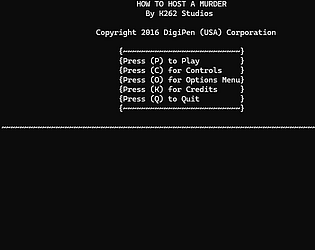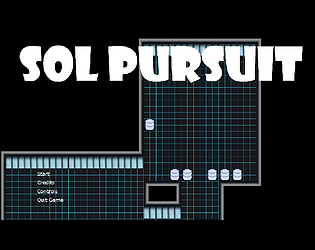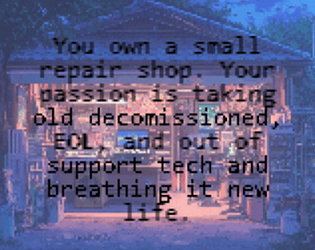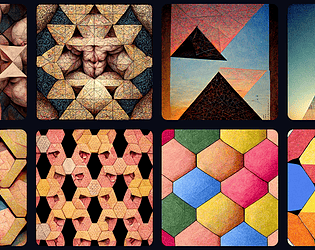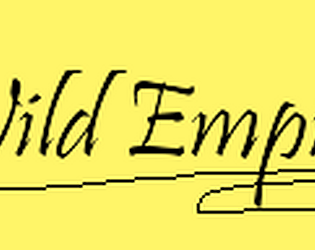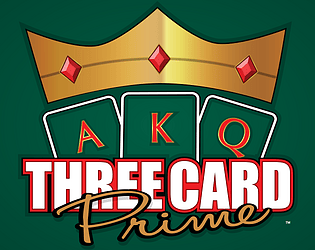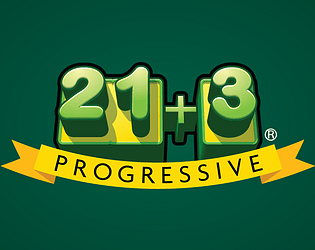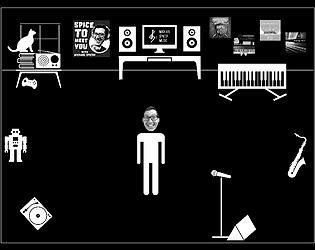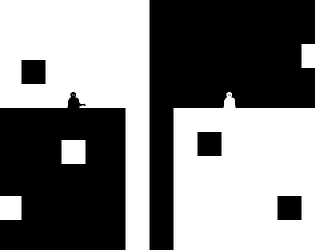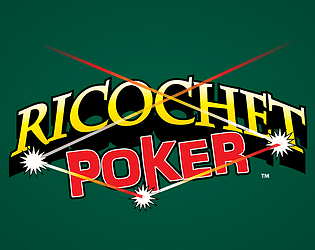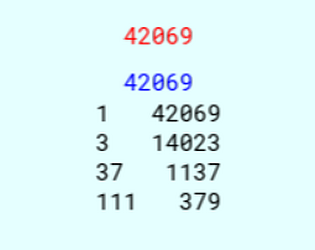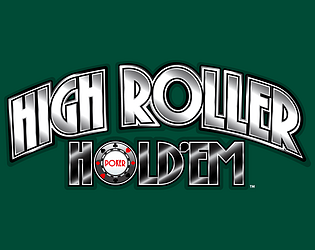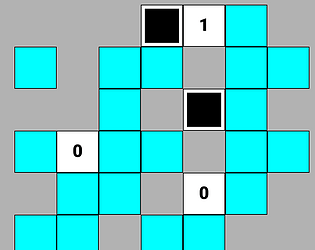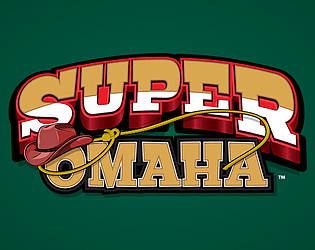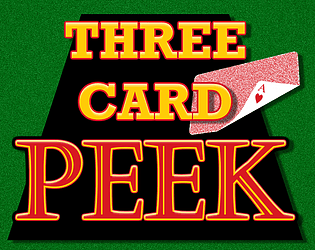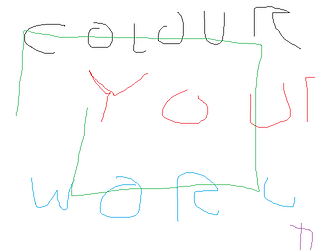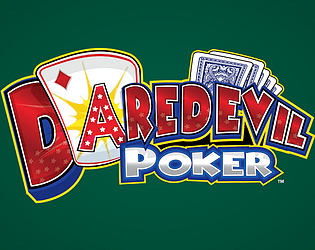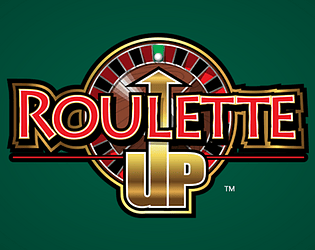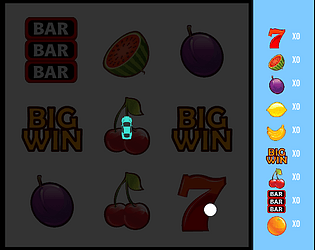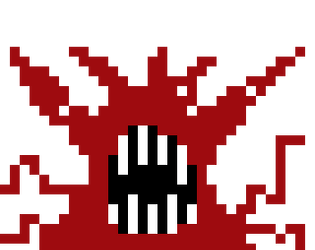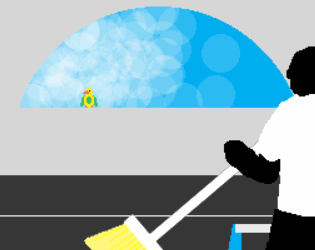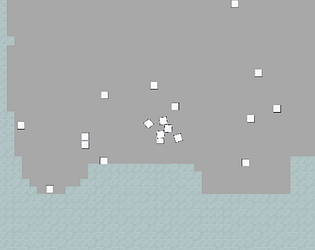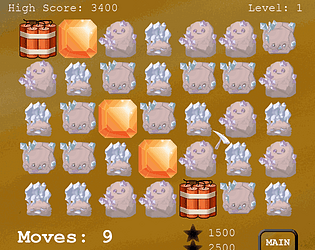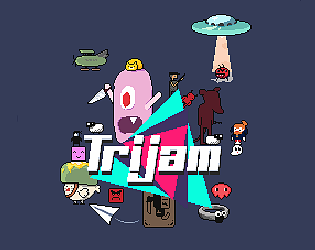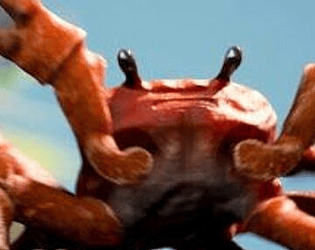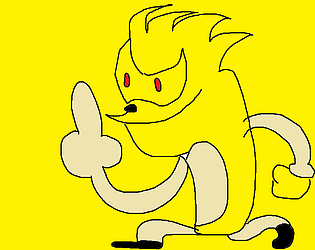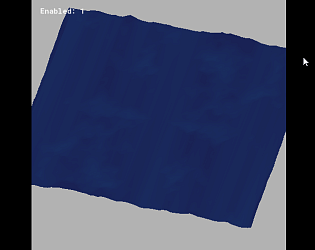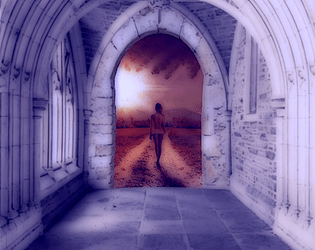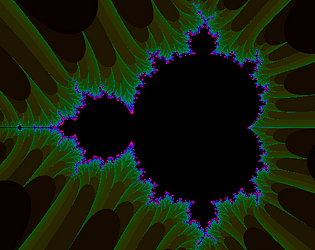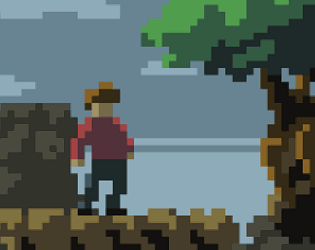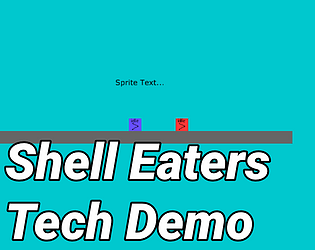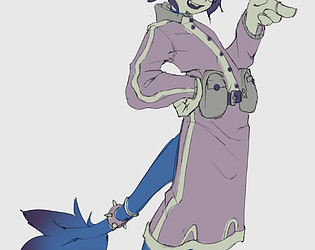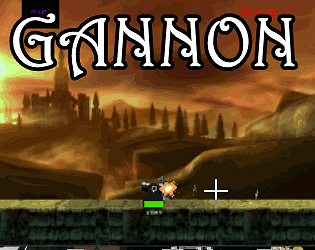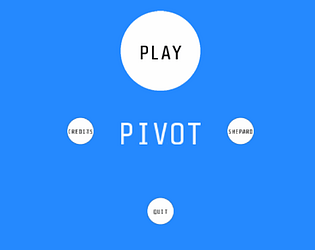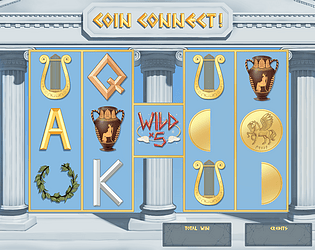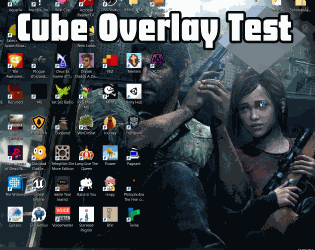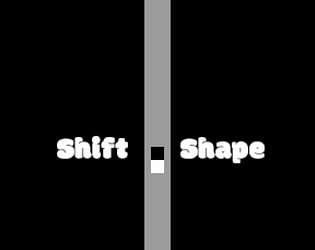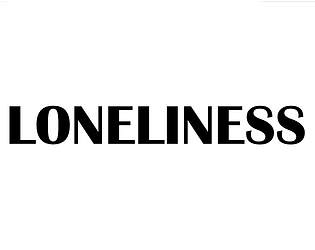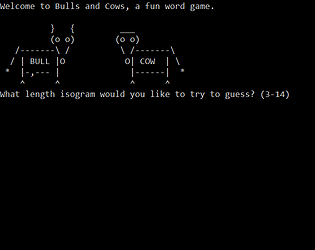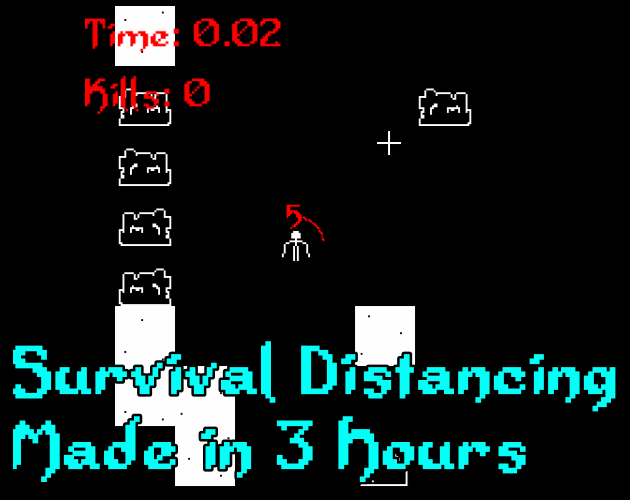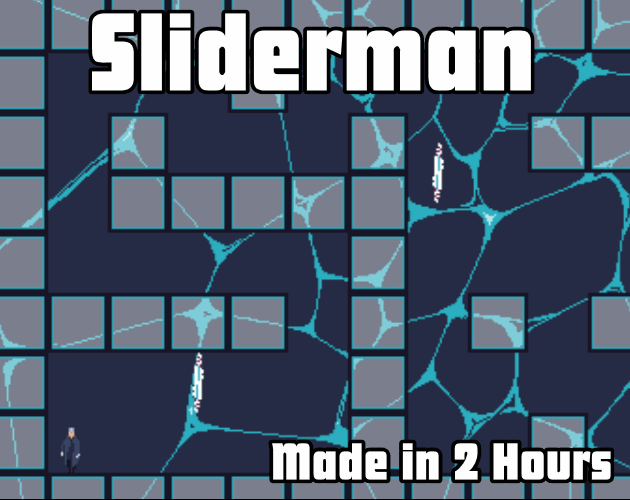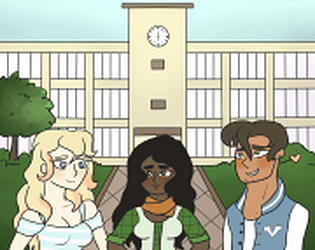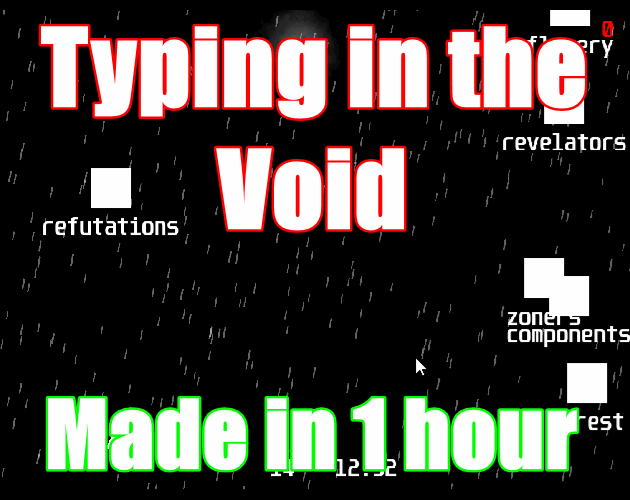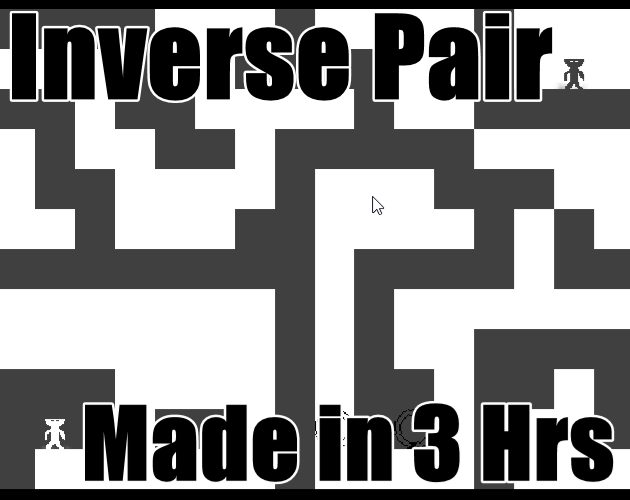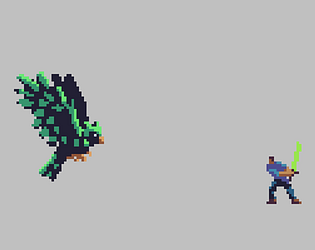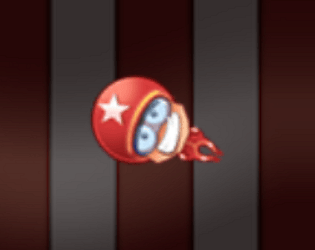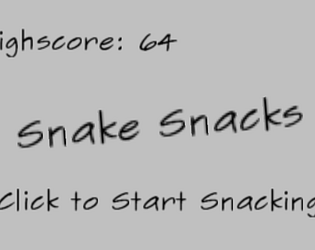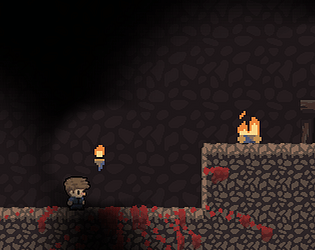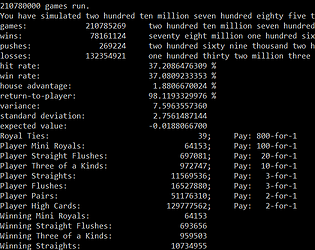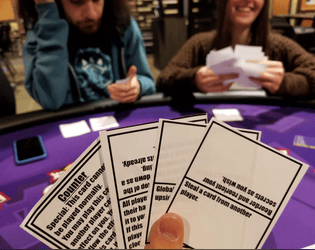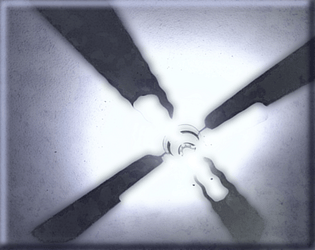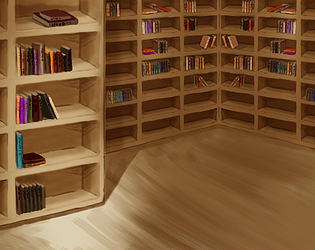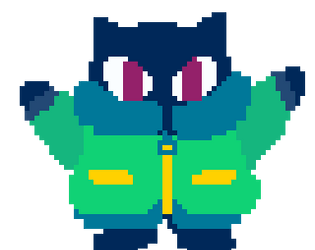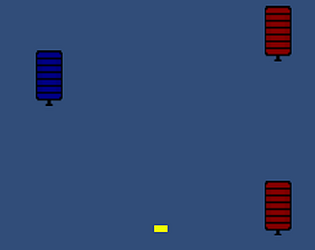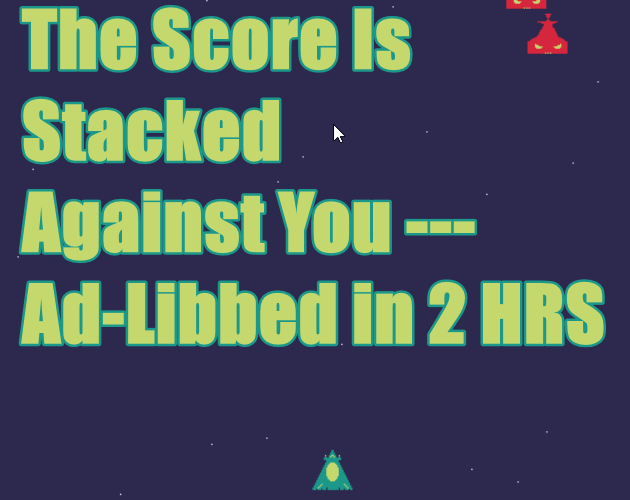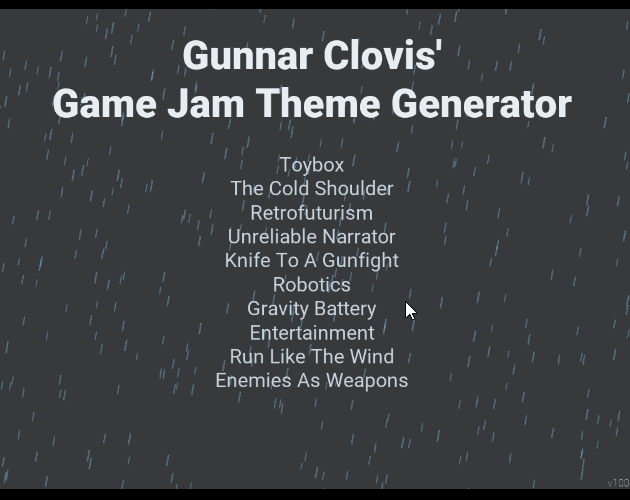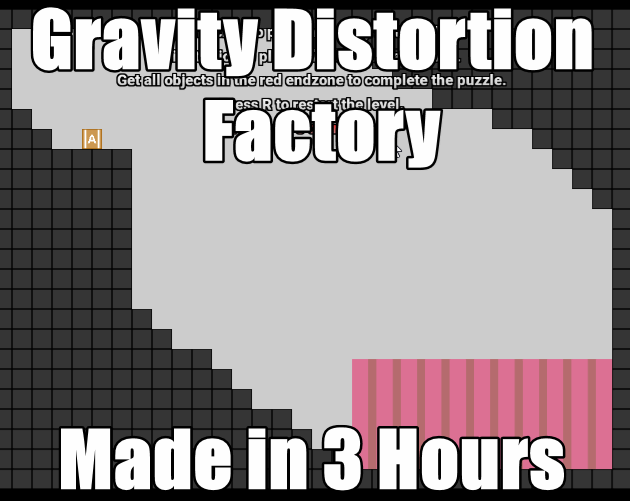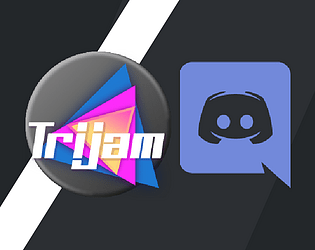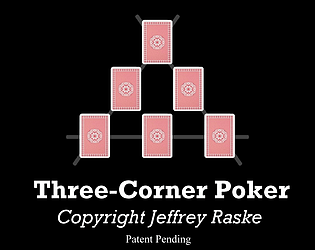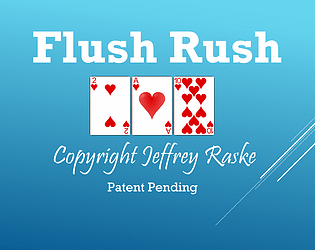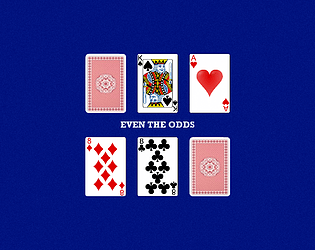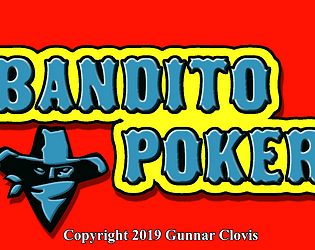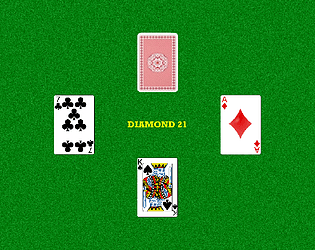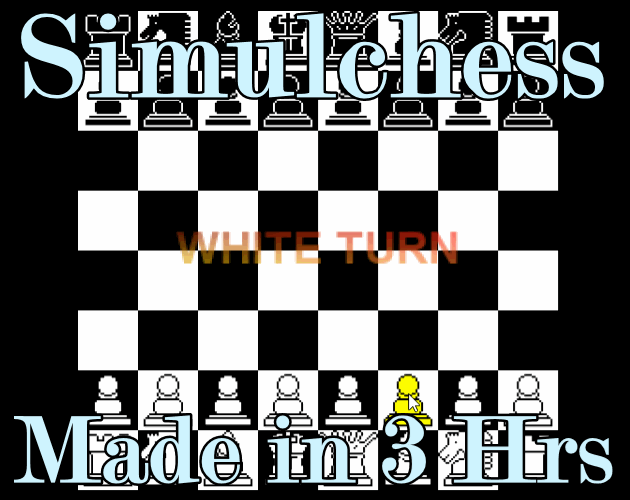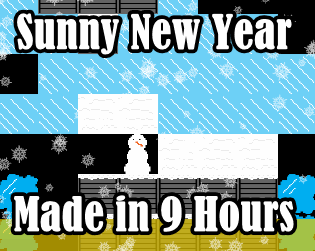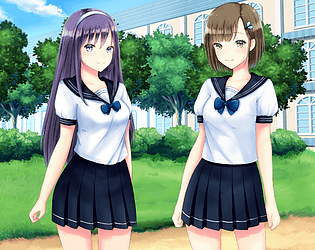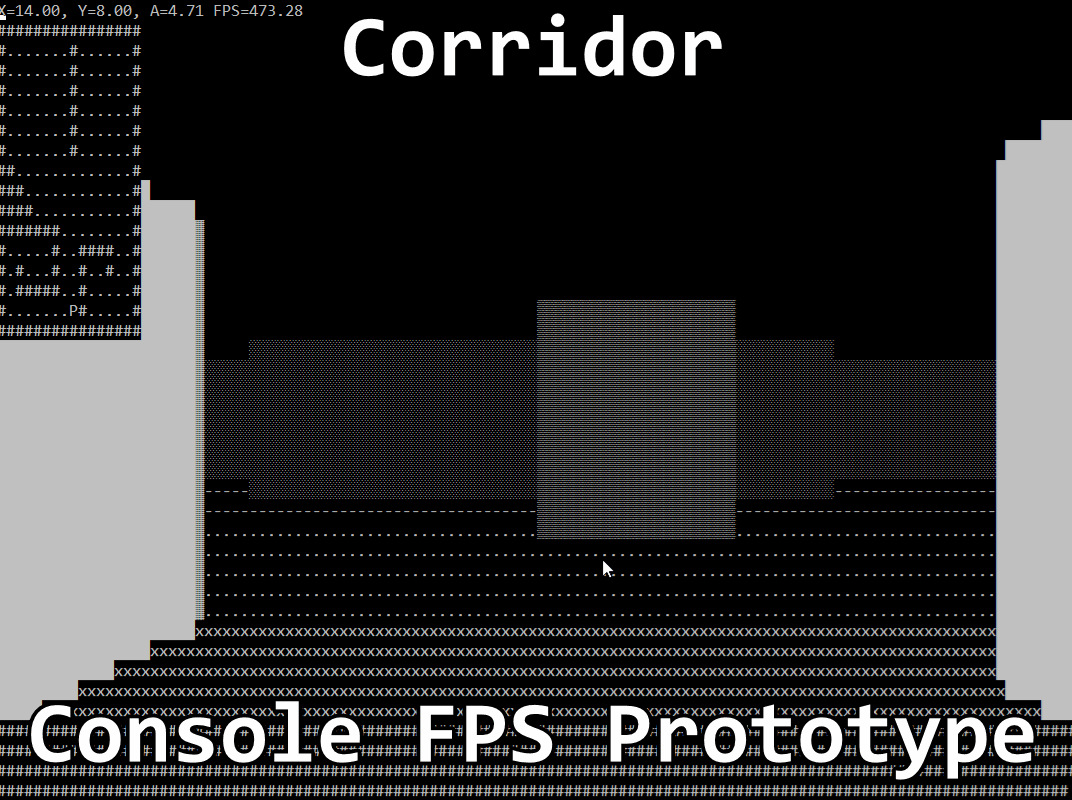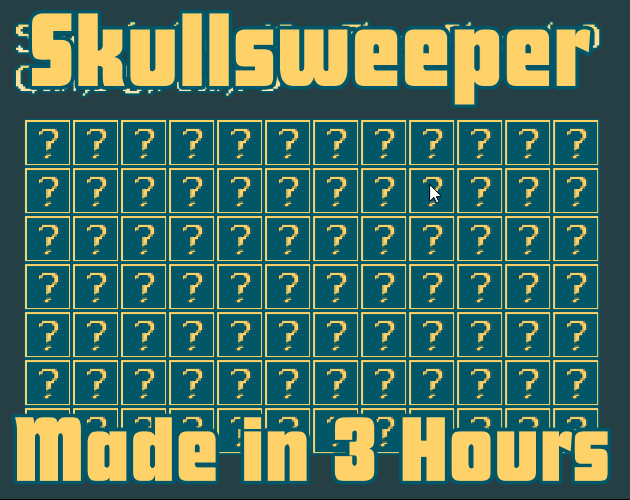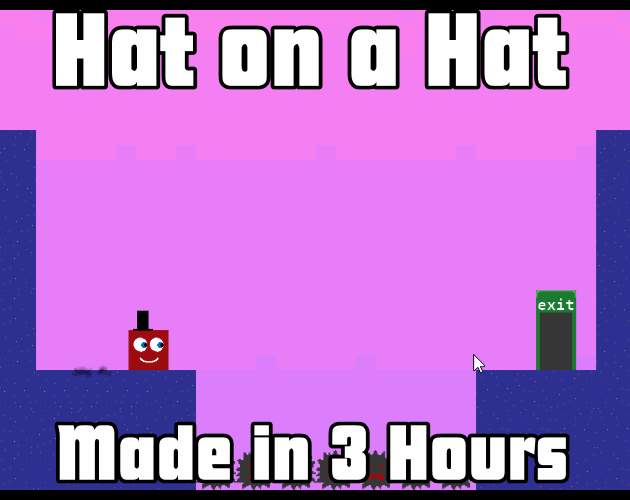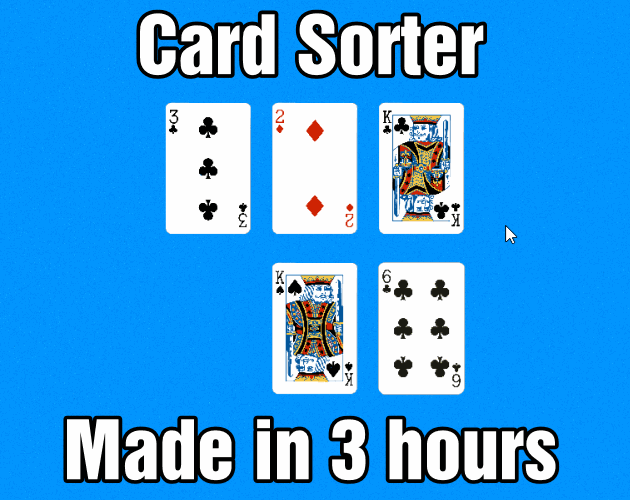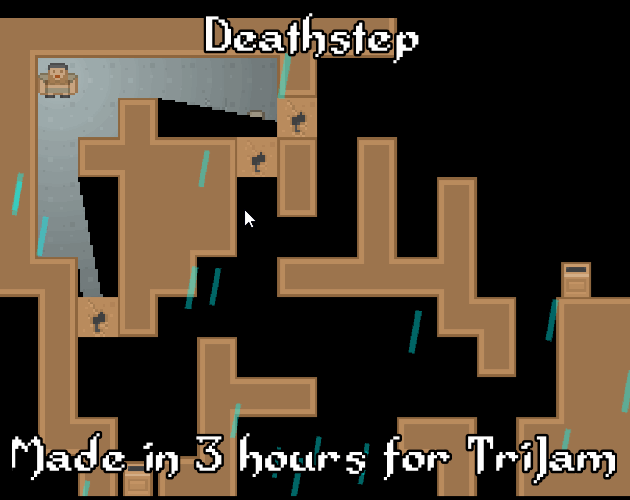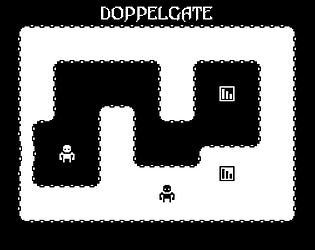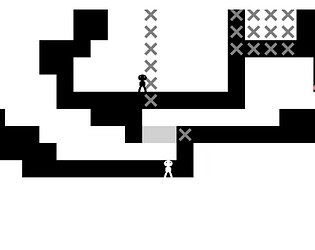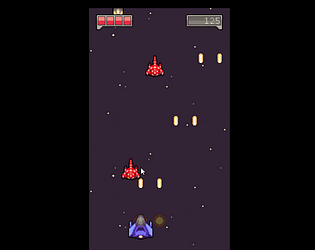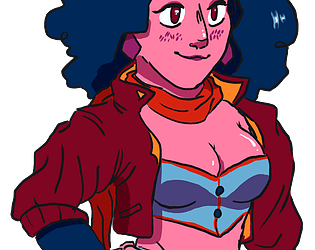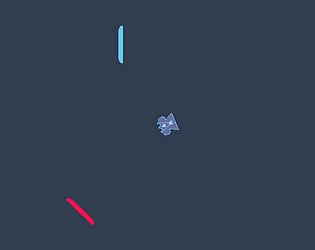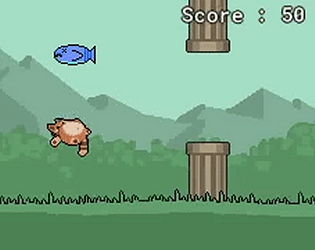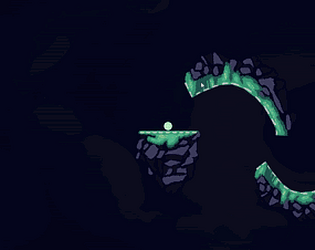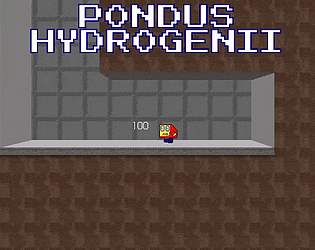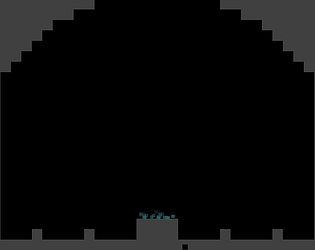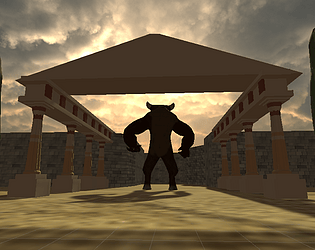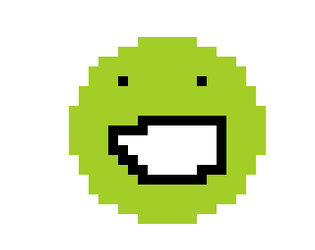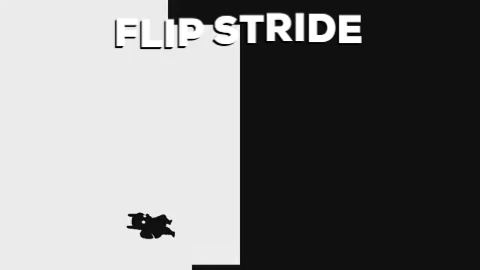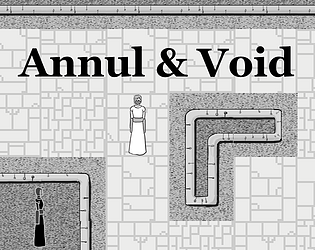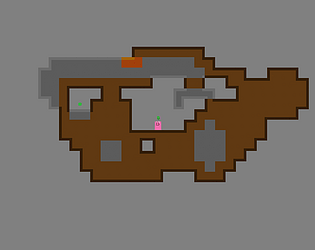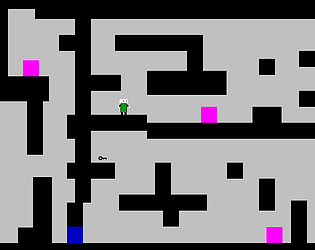Wow I've been watching your YT for years blissfully unaware you were so based
Gunnar Clovis
Creator of
Recent community posts
I think the particle effects were good, but you could consider changing the colors so the player can read from afar or with their peripheral vision. For example, enemy bullets could be yellow, so then yellow is the 'avoid' color. Or if we kept enemies and enemy bullets green, their death particles could be a much darker green or a grey.
It's great that you're iterating quickly to player comments, that's a good work ethic and attitude. But don't feel like you need to iterate on everything I say, especially for a Trijam (as that defeats the purpose of the jam if your iterations take you past 3 hours dev time), I was just trying to give some advice you could think about for your next game :-)
I'll give another thought: think about scaling the difficulty of your game over time, and ideally changing the player properties so there's a sense of progression, especially for a score-based game like this. You could increase the spawn rate of the enemies in accordance with the player score. And/or create milestones for the player at 100, 500, 1000 points, etc. that increases the player's fire rate or bullet size, fires multi-shots, etc. Obviously you can interject a lot more creative ideas, but simple number scaling based on other numbers (e.g., the score) is a fairly quick and easy addition you can make to a game like this that's possible to fit in a Trijam.
Regardless, great work, I hope you keep making games! Challenge yourself to make a game every weekend for a few months and see how you improve!
Nice work! It was smart that you made the coins non-pickup-able while the player is at full health, and it was smart that the game resets to the main menu upon death.
Next time, consider the colors for the readability of the game. It's great that in this game, red is consistently good as the player color, player bullet color, and coin color. That makes it instantly readable as red = good (even though in most games red = bad). And that it's good that enemies and enemy bullets are both consistently green, but when the enemies die, they release green particle effects, and there's green art on the map. I'd consider making the latter two a different color, because the additional green clutters the player's vision of the game and can make it slightly harder to see incoming enemy shots (i.e., confusing enemy death particles and enemy bullets, or enemy bullets hiding amid the map art).
Really fantastic execution of this classic simple game jam genre. Procedural squash & stretch and VFX make super simple square graphics look great, the chromatic aberration is nice but not too much, and I really love the transition between rounds, that's an awesome touch. Awesome visual package.
The fact that there's actual terrain and it changes over time puts this above most arcade arena shooters, great simple improvement.
Multiple enemies and warning of where they're spawning makes this feel more high-quality as well.
The one thing I think this needs is a reason not to spam the fire button. Like most similar games, it's optimal just to keep spamming fire, which hurts the finger and isn't fun. Ammo, an overheat mechanic, or better yet alternate fires or a charge shot would help a lot. Also consider stuff like changing the player movement speed when firing or not, give the player a choice of how to interact instead of one single optimal way to play.
And while the changing terrain is great, alternate goals besides just killing enemies would be great too to vary the gameplay loop. For example, ammo, powerups, or health packs are a simple way to vary the play experience, but I'd recommend stronger design changes like every once in a while a specific position spawning the player needs to get to or else they lose health or can't fire or slow down, etc. There are lots of different design ideas to experiment with.
This game is extremely competent and impressive. Awesome job. I look forward to seeing what else you make.
Good effort.
It would be good to restart the game on R, that's always a good idea in any game jam game, and usually pretty straightforward in most game engines, and same thing restarting properly with the return to the main menu.
Keep practicing to improve your work efficiency so you can include sound too. Tools like BFXR make SFX production really quick and easy, but you can just download free sounds or record silly sounds from your mic as well. Same for music, there are lots of easy free AI tools like Suno and plenty of free music tracks you can download and throw into your games with usually a single line of code.
In terms of game design, in games like this the optimal player strategy is just to keep spamming the fire button. It would be great if you can figure out reasons why the player can't do that, like limited ammo, an overheat mechanic, losing points for missed shots, or charging stronger shots, etc.
Keep making games! I hope to see you make more in the future.
Really slick visuals. Fantastic work. Very cohesive, distinct, good little procedural animation when finishing a level, the VFX, all great.
Seems endless with procedural levels, which I think is great for a Trijam.
I would like to see some other mechanics in the puzzles to make them more difficult. As of now, the gameplay is very trivial and not very engaging in terms of design, but the art and animations are so fun that it carries the whole thing.
Overall, awesome job. I hope to see more from you in the future.
Good effort, hope to see you make more in the future.
It would've been good if the train wheels stopped spinning and the background stopped animation for wind whipping past once the train stops/breaks. A little animation or explosion particle effect or something to indicate the failure would've been great too.
On a more higher level game design concept, the repeated button mashing isn't a super engaging game loop. Some other obstacles to overcome, some variation, and perhaps distinct levels with an end goal (to give the player a break), like the train arriving at its destination, would help to improve the player experience.
Keep making games!
Art is simple and effective, cute character design and animations, but the level design isn't very fun.
The jump in-air 'cheat' is too easy/obvious to discover accidentally and trivializes the gameplay, but playing without that is way too difficult, especially for such a short game. There isn't really a difficulty curve. The challenges could have been broken up into multiple shorter levels, and the collectible floppy discs could have used a bit more. That second level is far too long and difficult for a second level, and it's odd that it lacks the floppy discs. The third level would make more sense in its place, some re-ordering would help, but breaking up the levels and defining a more engaging difficulty curve would be best.
Overall, it's a great visual package, good theming for a Trijam game, and well-scoped. I hope to see you explore more about game design and refining the player experience with your future endeavors.
Cheers,
Thank you so much! This was a quick 3-hour game made for another jam (three hour Trijam), and I submitted it here too because at the time I was being encouraged to submit games to multiple jams where applicable, especially Decade Jam (I no longer really like doing that).
I enjoyed making it, as I've always been obsessed with negative space games (I have a few more on my profile, like Doppelgate). I want to get back to making them someday, but in recent years I haven't done any online public itch games or jams because I've been busy with my first baby, and working in-industry at House of How on Minecraft and Invincible stuff, etc.
As for a level with no rings/exits where you were confused, you probably reached the end. The final level was drawn with 'You Win!' in the background using grey blocks, as I recall, and I remember a lot of people not seeing that blocky attempt at text in that level and being confused. It's a short and simple game, given it was only three hours of dev.
Thank you so much for playing and commenting! I appreciate your kind words. I'll try to return the favor when I'm back home from traveling.
Thank you, my friend! I'm very glad you enjoyed it!
I wrote the script for this game in only about an hour as a stream-of-consciousness nonsense-fit making up things that made me laugh. The entire game was only made in 3 hours for a 3 hour game jam, with 2 hours being spent learning Ren'Py. I really loved making it, and always wanted to come back to the premise and make a full version, and after all the positive feedback over the years, that's been more cemented.
I work (very) full-time as a game developer at a game studio called House of How, so I don't know when I'd have time to work on Love at Fujikawa again, but I'm definitely interested in doing so.
A great effort for year 1 students, especially given only four weeks!
An impressive amount of content—a very large environment with a lot to explore, and a great amount of detail in the environment, some attempts at environmental storytelling, and just a lot of placed objects to differentiate scenes, which is more than can be said for most student Unity games! It's naturally nothing revolutionary, but for a four-week sprint by beginning student game developers, I'm very impressed.
The codebase seems perfectly solid; I'm sure bugs exist like any game, let alone student game, but I couldn't find one. Sometimes collision didn't exist between my player character and enemies, but I chalked that up less as a bug and more just a calculated dev-decision; I didn't think it a problem at all. Of all things I would want changed about the game, proper player-to-enemy collision is about the bottom of my list.
The art assets are fine and serviceable, though the environments are very samey in appearance. I was impressed by the visual level design—how the objects were used to create environments, laid into curious cots and tables and collapsed piping—but my primary fault or gripe with this game is how unilaterally gray it all is. I'd love it if more colors, negative space, lighting, and contrast was used to break up and differentiate the visuals and environments and guide the players—but that's hardly a chilling indictment of the developers' character, as overly samey-looking gray or brown environments is an extremely common problem, even in AAA games with years of development and millions of dollars of funding! So such samey environments in a quick month-long early student project is hardly a big deal.
The other main fault with the game is the game design and UI/UX—which is exactly as expected. Even if more time was given and the developers were more senior at the time, game design and good user experience is deceptively hard and tricky to pull off. Even among senior game designers, most of the good design quality of their games comes from avid playtesting and iteration, not talent or even skill. Knowing how a fresh-faced user will interact with a game takes years and decades of design and playtest experience to really understand, and even then, few to none really claim to be masters of it. Even great game designers have bad UI/UX in their prototypes, only ironed out with that repeated playtesting. This is exceedingly common for beginning designers, students, and games made in a game jam or other rush. If I was asked to list desired changes to this game, it would all start with that UI/UX and game design—pause menu with controls and settings on escape, tutorialization for all controls instead of the side screen, some controls and mechanics like the time slow being either cut or better integrated into the game, changes to the gunplay, timing, reload speeds, rebalancing the guns, allowing the player more counterplay beyond taking cover while reloading to avoid enemy damage instead of just tanking while shooting, more direction, better indication of where the player has already been, etc.—but these issues are exactly what I'd expect from a beginning team's Unity game, especially a student game made in such little time. I don't fault the game much for it, and even still, I don't wish all games to have that perfectly polished UI and good game design, because there's a genuine charm to simple student games like this with their blocky Unity menus and lack of tutorialization. I'm always glad games just like this exist, as they're fun in their own way as an occasional experience. It's a novelty if nothing else.
And judging by how the keycode scribbled on the wall in the screenshot is different than the one I saw in my run, I presume that number is randomly generated? If so, that's a brilliant touch! That seems like a no-duh move, but I can't remember a single other 3D game I've played that's ever done that before, where the password / pin number, etc. you find in the environment to open a door / chest is random each playthrough so it can't be cheated. I can think of so many big-standard AAA games—even some of my favorites like Dishonored and The Last of Us—and they don't do that touch, even though it would be so easy, especially because in those games the passwords/passcodes are just communicated as text in reading handouts, instead of environment textures. That's honestly given me something to think about, and I'm going to stow that lesson away as a neat trick. It's very rare that a game gives me a trick or idea like that to really take away from it permanently; that's really awesome. Escape Marchana earns good marks in my book for that alone.


